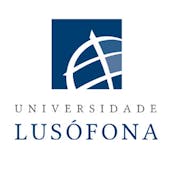
Lusófona University

Lusófona University is the result of the integration of Universidade Lusófona de Humanidades e Tecnologias and Universidade Lusófona – Porto, originating two university centres (Lisbon and Porto). From the very start, their goals are “education, research in the various fields of science, culture and technologies, from an interdisciplinary perspective and, above all, with a view to the development of Portuguese-speaking countries and peoples”.
The history of Lusófona University began in 1998 with the merger of ISMAG – Higher Institute of Applied Mathematics and Management, a university institute, and ISHT - Higher Institute of Humanities and Technologies, a polytechnic institute. Both had been founded in 1989 by COFAC, the same founding entity that would go on to create Lusófona University. The subsequent purchase of the facilities of Universidade Moderna - Porto would give rise to Lusófona University - Porto.
Lusófona university is the largest private university in Portugal. The entity that is legally responsible for managing and developing the university is COFAC - Cooperativa de Formação e Animação Cultural, a not-for-profit educational entity, located in Lisbon, Portugal, which is currently the largest not-for-profit educational organisation not funded by the state in the country.
The name of the university comes from the term “Lusophony”, which comprehends all the Portuguese-speaking countries and their common linguistic and cultural background.
The University campuses, now called Lisbon University Centre and Porto University Centre, are located at the heart of the two cities, locations that are strategically connected to the whole transportation network.
Lusófona University advocates equal opportunities, and at present has a body of more than 16,900 students and 1.671 teaching staff, articulated in the 15 Faculties, Schools and Institutes which constitute the main institutional unit.
Currently, Lusófona University offers 65 Bachelor programmes, 70 Masters, 4 Integrated Masters, 8 “Erasmus Mundus” International Masters, 2 Professional Masters and one in EAD, 13 PhD programmes and a wide range of postgraduation, specialised training and micro-credential courses. All the University’s courses meet the European higher education requirements, and comply with the European Credit Transfer System (ECTS). Moreover, they are accredited by A3ES, the entity responsible for assessing and accrediting higher education in Portugal. From its assets, it is important to highlight its strong international nature, quite evident in the fact that the university leads one of the new “European Universities”, namely, Filmeu - European University for Film and Media Arts, and actively participates in dozens of research projects within the scope of, among others, the European programmes Horizon and E+. Furthermore, it welcomes more than 1,700 international students of 84 nationalities who are currently attending its courses.
Lusófona University’s growing visibility and renown is reflected in its prominent presence in several rankings, specifically:
Multirank
At global level, Lusófona University stands out among the 25 assessed universities by its excellent performance in the Cooperation index. - Access SCIMAGO
Lusófona University holds the 7th place in the ranking, ahead of most public and private institutions. - Access *Times Higher Education World University Rankings *
Lusófona University stands out on the Times Higher Education World University Rankings 2023 in the 1001-1200 tier worldwide and in position 412 at European level and by areas of study (Health Sciences - 601- 800 tier, and Psychology - 401 – 500 tier) - Access As a community of people, ideas, achievements and projects driven by the desire to produce, share and transfer knowledge and scientific, technological, cultural and artistic know-how, Lusófona University takes on the commitment to respond to the present challenges of the European Agenda for Higher Education, investing in its:
Internationalisation; Sustainability & Digital Transition; Research & Innovation; Training (Professional and EAD Master programmes, and Lifelong Learning)
Links
Displaying 1 article

